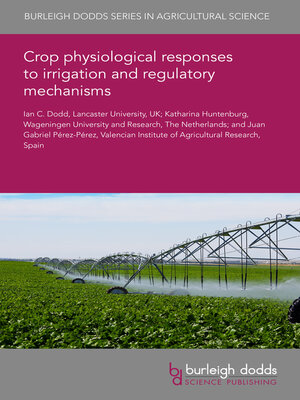Crop Physiological Responses to Irrigation and Regulatory Mechanisms
ebook ∣ Burleigh Dodds Series in Agricultural Science
By Dr Ian C. Dodd

Sign up to save your library
With an OverDrive account, you can save your favorite libraries for at-a-glance information about availability. Find out more about OverDrive accounts.
Find this title in Libby, the library reading app by OverDrive.



Search for a digital library with this title
Title found at these libraries:
| Library Name | Distance |
|---|---|
| Loading... |
Irrigated croplands are especially productive but increasing costs of irrigation infrastructure, and political pressures on abstraction, requires enhanced irrigation efficiency. Farmers may be risk-averse to growing with less irrigation, requiring that the irrigation science community develop techniques to maintain or boost productivity while conserving water. Devising deficit irrigation strategies appropriate to specific crops and/or environmental conditions requires understanding mechanisms regulating the relative sensitivity of different yield-determining physiological processes to soil and plant water deficits and utilising appropriate instrumentation to dynamically measure these responses. Two case studies are presented. Restricting water to citrus crops at certain stages of fruit development (regulated deficit irrigation), with water status allowed to fluctuate between defined thresholds, allows water saving while maintaining fruit growth. Partial rootzone drying of tomato crops stimulated root-to-shoot signalling to increase water use efficiency while maintaining root and fruit growth at the expense of shoot growth.







